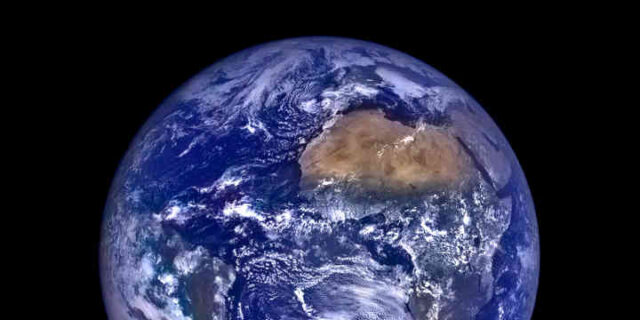Are we alone in the cosmos? Or are there other, perhaps many other, intelligent life forms out there?
An associated question is whether earth is unique, or whether there are many other planets that could support life. This is a scientific question, but also has importance (for some people) for the question of the existence of God.
New scientific information may have some bearing on this question.
An old design argument
The design argument for the existence of God has taken several forms over the years.
- In 1802, William Paley pointed out that, if in crossing a heath he chanced upon a watch, he would immediately draw the inference that it had a designer and maker. He went on to argue that the natural world exhibited a greater evidence of design, thus pointing to God as the designer and maker. However Darwin’s theory of evolution by natural selection provided a mechanism that could explain the apparent design without God, a view championed in Richard Dawkins’ The Blind Watchmaker.
- A second form of the argument considers the conditions required on earth to allow life – the location of our solar system within our galaxy, the type of sun, the earth’s distance from the sun, its chemical composition, etc – and argues that these are unique, and can only be explained by special creation.
- A related argument begins from the observation that “those same rare conditions that produce a habitable planet – that allow for the existence of complex observers like ourselves – also provide the best overall place for observing”. This suggests that cosmology and astronomy are only possible because of these features, and again it is argued that this points to special creation.
- The most persuasive design argument (in my view) arises from the observation, first noted scientifically less than half a century ago, that many cosmic laws and parameters had to be within very narrow ranges to allow life to form, or even for the universe to exist for very long. This combination of factors is extremely unlikely by chance, so again an argument for special creation is made.
In this post, I am looking at some new information related to the second argument.
A rare earth?
Many people have considered whether the earth is very rare in the universe, or if it is likely that there are many similar planets “out there”.
On the one hand, it is argued that there are an estimated 10^22 potentially inhabitable planets in the universe, and so the exact conditions required are probably replicated many, many times. The Drake Equation has been formulated to express this in quasi-scientific terms. Further, it can be argued that we don’t know how big the universe is, so there may well be many more potentially habitable planets out beyond what we can see.
On the other hand, it is argued that the conditions necessary for life are prohibitively rare, this view being reflected in the Rare Earth Equation, and the calculation of the probability of a planet like earth forming in the universe as being 1 chance in 10^76.
I have reviewed the evidence either way, and concluded that both views lack a strong basis, but the rare earth hypothesis may be slightly more likely.
The earth’s mineralogy
A recent (2015) paper by a bunch of geoscientists and a mathematician considers the occurrence of the rare element beryllium on earth. Beryllium is currently known to be an essential component in 122 different minerals, and statistical analysis indicates it probably occurs in 91 other minerals that haven’t yet been discovered.
From this information, the probabilities of the same beryllium minerals occurring on another earth-like planet is found to be very small (about 1 in 10 billion). Extrapolating to other minerals leads to the conclusion that the chances of another planet in the universe duplicating earth’s mineralogy is less than 1 in 10^322. Using an estimate of 10^22 for the number of candidate planets in the universe, the authors conclude: “Earth’s mineralogy is unique in the cosmos.”
So is the earth rare after all?
So it does appear that the earth is unique in its mineralogy. But this says little about whether life is unique, because it is doubtful if many of these possible mineralogies in themselves would prevent life.
I can imagine that there are many other factors not necessarily considered by rare earth proponents that may make the earth unique in some way. Could any of them make a difference to the probability of life evolving? I don’t know, but you’d have to think it may be possible.
So perhaps this mineralogy information makes the rare earth hypothesis just a little more likely. I don’t think it is enough to form the basis for a strong argument for special creation (I still much prefer cosmological fine-tuning), but I suppose it must be something to consider.
If you found this worthwhile, you may like these:

Does there have to be a reason for everything?
Can the universe be explained except that God made it?

Arguments about universal fine tuning: Carrier vs Barnes
An atheist vs a scientist.

The science of universal fine-tuning
What cosmologists have concluded.
